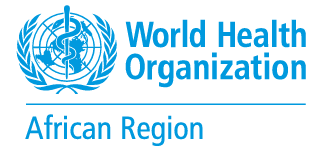Sierra Leone moves closer to Universal Health Coverage with high-level engagement on draft Sierra Leone Agency for Universal Health Coverage (SLAUHC) Bill
Sierra Leone has taken a critical step toward advancing Universal Health Coverage (UHC) with the convening of a high-level policy dialogue on the draft Sierra Leone Agency for Universal Health Coverage (SLAUHC) Bill. Organized on 6 May 2025 by the Ministry of Health with support from the World Health Organization (WHO), the one-day engagement brought together over 60 senior leaders in Freetown, including ministers, directors, and technical heads from across the health sector.
The proposed SLAUHC Bill outlines the establishment of a dedicated agency that will integrate and manage two major national health financing mechanisms, the Free Healthcare Initiative (FHCI) and the Sierra Leone Social Health Insurance Scheme (SLeSHI). The unified governance structure aims to address current fragmentation, improve the efficiency of health financing, and accelerate the country’s progress toward achieving UHC.
“This Bill is a transformative step in Sierra Leone’s journey toward sustainable health financing,” said Dr. Ibrahim F. Kamara, speaking on behalf of the WHO Country Representative. “It will strengthen institutional capacity, enhance accountability, and ensure equitable access to health services, particularly for the most vulnerable populations.”
The engagement served three key objectives: a comprehensive review of the draft legislation, consensus-building among stakeholders, and alignment with the Ministry of Health’s UHC Roadmap and SLeSHI implementation framework. The outcome is a consolidated and informed policy position ahead of the bill’s submission to the Inter-Ministerial Committee (IMC).
Chief Medical Officer Dr Sartie Kenneh emphasized the importance of a comprehensive and inclusive approach to UHC: “the name and scope of the bill must reflect the broader dimensions required to achieve UHC. While health financing is a critical pillar, it is only one part of the equation. No healthcare service is truly free, while it may be free at the point of delivery, someone ultimately bears the cost. Therefore, we must collectively design a sustainable health financing model that ensures long-term viability. It is also prudent to allow the Free Healthcare Initiative and the Social Health Insurance Scheme to operate in tandem, to optimize coverage and ensure the full spectrum of healthcare costs is addressed.”
The proposed SLAUHC Agency responds to longstanding structural challenges in the health financing landscape. Currently, out-of-pocket payments account for 56% of total health expenditure, well above the sub-Saharan Africa average of 30%. Less than 1% of Sierra Leone’s population is covered by any social health protection scheme, exposing many to catastrophic health spending and pushing households further into poverty. Moreover, with 75% of health financing reliant on donor contributions, ensuring coherence with national priorities remains a pressing issue.
The draft bill is grounded in the Ministry’s Health Financing Strategy 2021–2025, which calls for the creation of a Universal Health Coverage Fund, integration with SLeSHI, and the development of operational and regulatory systems to support long-term health sector sustainability.
WHO has reaffirmed its full technical support to the Ministry in the finalization and operationalization of the SLAUHC Bill. This includes support for institutional design, capacity strengthening, cost-containment mechanisms, and the establishment of care quality and priority-setting frameworks.
Once enacted, the SLAUHC Agency will serve as a central institution for resource mobilization, regulation of financial flows, and oversight of major health benefit programs. It is expected to play a pivotal role in improving efficiency, transparency, and equity in health service delivery.
This high-level dialogue marks a significant milestone in Sierra Leone’s health sector reform agenda. It paves the way for the establishment of a National Health Insurance Scheme and reinforces the country’s commitment to achieving health for all, leaving no one behind.
Distributed by APO Group on behalf of WHO Regional Office for Africa.



